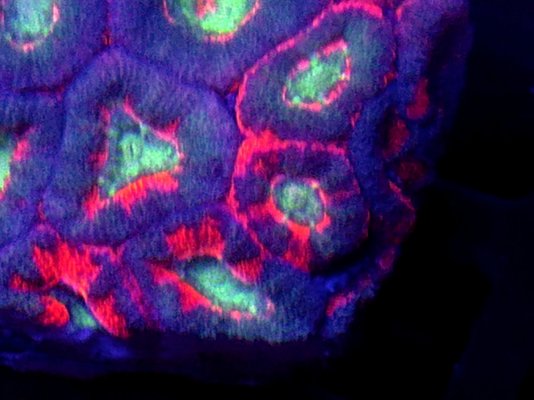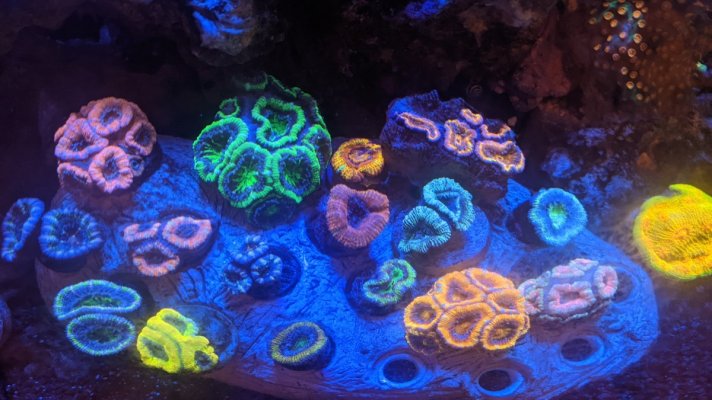Navigation
Install the app
How to install the app on iOS
Follow along with the video below to see how to install our site as a web app on your home screen.
Note: This feature may not be available in some browsers.
More options
You are using an out of date browser. It may not display this or other websites correctly.
You should upgrade or use an alternative browser.
You should upgrade or use an alternative browser.
Official Micromussa lordhowensis (formerly Acanthastrea lordhowensis) Show Off Thread
- Thread starter its fry
- Start date
- Tagged users None
Where are those atOne and only..
Nice one I picked up yesterday:

Mostly 'Lords' with a few other LPS and others thrown into the mix:

The two large orange single polyp ones acting as 'bookends' are a bit over 1-1/2" across. All were started as either single or dual polyp frags.
The two large orange single polyp ones acting as 'bookends' are a bit over 1-1/2" across. All were started as either single or dual polyp frags.
Nice! Are the two massive bookend ones a different species, or are they just being weird?
That's a really good question that I've asked myself.
Besides being quite a bit larger than typical, what I can say is that both of these two have been much, much slower than my 'regular Lords' to produce budding polyps. And the way the polyps form at the base reminds me more like what a Blastomussa wellsi does rather than a side-spreading Lord. Also, when I had one of these next to a Bowerbanki they fought, whereas there is no fighting between the Bowerbanki and regular Lords.
Just as with the different forms of Ricordia yuma, I suspect that these 'Lords' may well be a separate species.
Last edited:
They definitely don't look like micro lords, at that size and with a different growth habit. Definitely notable that they aren't a cluster yet. I wonder who would be able to tell if that's a different species?
They definitely don't look like micro lords, at that size and with a different growth habit. Definitely notable that they aren't a cluster yet. I wonder who would be able to tell if that's a different species?
Would need a specialist for a detailed review of the skeletal features and DNA testing. Historically, for these things to come to light can take ages.
Sometimes the best we can do is just keep a record and make note of the coral's habits, whatever it's identity happens to be.
Last edited:
Those white ones are amazing
acan pics from me
acan pic from me



Holy moly i remember this
Attachments
Where did you get it?My favorite: BSA Paint Splatter

Just picked this nice chunk up last week

Not sure how to make the colors pop on my iPhone. Even messed with lighting spectrum but here is my little collection.

 When I had my last reef tank these were unobtainable for me. Now I’m starting a collection and they’re all growing.
When I had my last reef tank these were unobtainable for me. Now I’m starting a collection and they’re all growing.





















